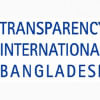How the government failed ‘family card’ recipients

When the family cards programme was introduced back in March this year to help 10 million poor and ultra-poor families combat the price hike of essentials, it seemed like a great and timely initiative. Essentially, each household was supposed to receive a subsidy of around Tk 550 twice for essential goods during Ramadan. However, a study by Transparency International Bangladesh (TIB) – conducted between April and June – has revealed quite the opposite scenario.
According to the TIB report, a staggering 40 percent of the cash transfer beneficiaries did not even receive the family cards. Additionally, about four percent of those who did receive the cards could not do so without facing hurdles, such as having to pay bribes of up to Tk 200 to get their cards. As for actually purchasing essentials using the family cards from the Trading Corporation of Bangladesh (TCB) trucks, the respondents complained of receiving poor quality goods or receiving much less than the amount promised – all while having to wait in line for an average of 1.2 hours to a maximum of 10 hours. And despite having obtained the cards, 7.5 percent of the beneficiaries could actually not afford the TCB goods. Many of the beneficiaries had to sacrifice a day's work (and their income) to stand in line for the TCB supplies. Many fainted from heat and exhaustion after waiting in line for hours.
For the government to take a necessary initiative to assist around 30 percent of the country's population, and to be unsuccessful in it due to internal corruption, irregularities, and a lack of communication, is severely disappointing. This will stand as yet another example of the government's lack of foresight and planning when it comes to any large-scale project or programme.
What is most telling of the authorities' apathy is that many people did not even know about family cards when they were first introduced. Before, people could queue up to buy goods at subsidised prices from the TCB trucks. But the introduction of family cards meant that even those who could only afford essentials at the subsidised prices could not purchase them unless they had family cards. Yet, TIB suggests that a significant number of real beneficiaries were left out of the programme due to corruption and political influence.
We would like to draw the authorities' attention to the findings of the TIB study and to take them into consideration when executing a similar programme in the future. The family card programme is highly beneficial in theory. But corruption and the influence of local politicians made it virtually ineffective. Given the rising prices of all goods, the poorest of our population require the government's assistance even more now than they did back in April. As such, we would urge the authorities to conduct all relief and aid programmes in a planned and efficient manner, and to rein in the ever-present threat of corruption, so that all deserving beneficiaries can receive the help they need.

 For all latest news, follow The Daily Star's Google News channel.
For all latest news, follow The Daily Star's Google News channel. 





Comments